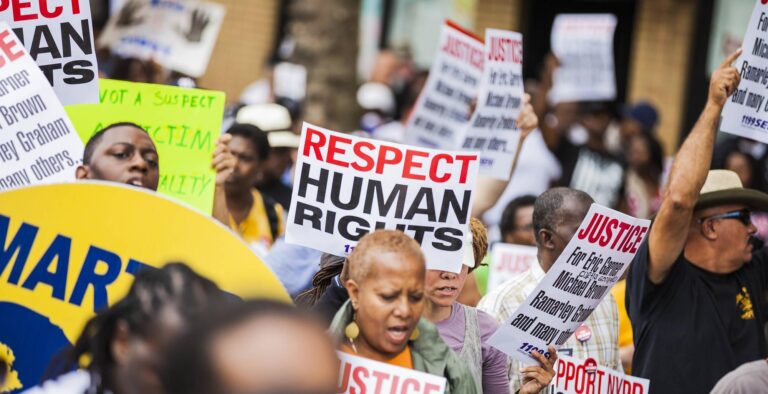The United States has raised concerns over the United Kingdom’s deteriorating human rights record, attributing the decline in part to the government’s controversial online safety regime. In a recent assessment, Washington highlighted how new regulations aimed at curbing harmful online content may be undermining fundamental freedoms, sparking a fresh debate over the balance between digital security and civil liberties. This development marks a notable point of tension between two long-standing allies as the UK continues to enforce stringent internet governance measures.
US Government Raises Concerns Over UK’s Online Safety Measures Impacting Human Rights
The US government has voiced significant apprehensions regarding the UK’s recently implemented online safety regulations, arguing they could undermine fundamental human rights. Officials emphasize that the broad scope and stringent enforcement measures within the legislation risk compromising freedom of expression and privacy online. Critics within the US administration worry that the UK’s approach, while aimed at protecting vulnerable users, may inadvertently stifle legitimate discourse and lead to excessive censorship by digital platforms.
Key points highlighted by US experts include:
- Vague definitions of harmful content leading to inconsistent application.
- Potential overreach by regulators, granting unprecedented control over online speech.
- Risks of unintended consequences affecting minority voices and activism.
To better understand these concerns, the US has compiled a brief comparison of online safety frameworks:
| Aspect | UK Framework | US Perspective |
|---|---|---|
| Regulatory Authority | Independent regulator with broad powers | Prefer limited, judiciary-led oversight |
| Content Removal | Mandatory within tight deadlines | Emphasis on transparency and appeals |
| Freedom of Expression | Balanced with safety measures | Prioritizes free speech protection |
Experts Highlight Specific Areas Where UK Policies May Undermine Freedom of Expression
Legal Ambiguities Fuel Censorship Concerns
Critics argue that the UK’s online safety regime introduces vague legal standards that could lead to disproportionate censorship of online speech. Experts warn that terms such as “harmful content” and “disinformation” remain loosely defined, giving regulatory bodies excessive discretion. This ambiguity risks suppressing legitimate discourse, particularly affecting activists, journalists, and minority voices struggling to navigate the blurred boundaries imposed by new legislation.
Impact on Press Freedom and Digital Rights
Beyond the online arena, concerns extend to traditional media’s ability to operate without undue restriction. Analysts highlight the increased regulatory burden placed on digital platforms, which may prompt over-enforcement or self-censorship to avoid hefty fines. The following table outlines some of the primary mechanisms critics believe could undermine freedom of expression under current UK policies:
| Policy Element | Potential Impact | Stakeholders Affected |
|---|---|---|
| Undefined Harm Criteria | Over-censorship due to vague guidelines | Content Creators, Journalists |
| Obligatory Reporting Duties | Chilling effect on platform openness | Social Media Platforms, Users |
| Strict Enforcement Penalties | Pre-emptive content removal | Digital Publishers, Activists |
Calls for Transparent Review and Strengthened Safeguards in UK Online Safety Framework
Critics urge the UK government to enhance transparency and accountability in its online safety framework, highlighting concerns that current oversight mechanisms lack independence and clarity. Advocacy groups emphasize the need for open, public reporting on content moderation decisions and the criteria used by tech companies to implement safety policies. They argue that without these measures, vulnerable users may continue to face unchecked risks, while public trust in regulatory bodies diminishes.
Calls for bolstered safeguards focus on the protection of fundamental rights, including freedom of expression and privacy, which experts say are at risk under the broad powers granted to regulators. Key recommendations include:
- Establishing an independent review board with diverse representation
- Ensuring clear appeals processes for content takedowns
- Introducing regular impact assessments published for public scrutiny
| Recommended Safeguard | Purpose | Potential Impact |
|---|---|---|
| Independent Review Board | Impartial adjudication of disputes | Increased credibility and fairness |
| Clear Appeal Processes | Rights protection for users | Reduced wrongful content removals |
| Regular Impact Assessments | Transparency of policy effects | Improved public accountability |
Insights and Conclusions
As the debate over online safety continues to intensify, the U.S. government’s critique of the United Kingdom’s human rights record signals growing international concern about the balance between regulation and civil liberties. With both sides defending their positions, the unfolding discourse will likely shape the future of digital policy and human rights standards on both sides of the Atlantic.




